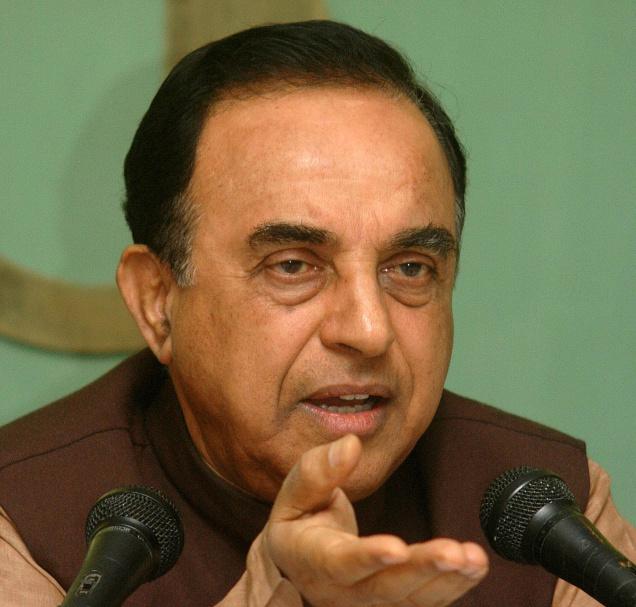‘Congress move on CJI has backfired’
Ravi Shanker Kapoor | April 22, 2018 6:19 pm

Senior Bharatiya Janata Party leader and Rajya Sabha member Subramanian Swamy is a crusader against corruption and an eminent economist. He spoke to Ravi Shanker Kapoor on a variety of issues. Excerpts from the interview:
How do you view the Congress’ impeachment move against Chief Justice of India Dipak Misra? Why are they doing it?
Swamy: The Congress has grossly miscalculated. Its leaders thought they could overawe the judiciary. Justice Misra was appointed when the Congress was in power, and the party leaders seem to believe that their every appointee should behave like a domestic servant. And the Congress is brutal to those who don’t prove to be servile.
But the Congress move has backfired.
So, the party wanted to overawe or bully the judiciary?
Swamy: Yes, the idea was to bully Justice Misra so that he recuses himself from the cases against Congress leaders he was handling. This would also have been a warning to other judges, that look even if we fail to impeach you, we can malign you.
But why this move? Former prime minister Manmohan Singh is reportedly against the impeachment move. So also are three former law ministers from the Congress—Ashwani Kumar, Salman Khurshid, and M. Veerappa Moily. Why then?
Swamy: Juvenile thinking is behind the impeachment move. Some buddhu has done it.
That’s how you describe Congress president Rahul Gandhi.
Swamy: (laughs)
How will it affect the Congress politically?
Swamy: People are already seeing this as revenge. The Congress is defaming the CJI, for there is no corruption angle. Some old case, which never made it even to the trial stage. The charges are so vague that Abhishek Manu Singhvi has to hedge his remarks cautiously. Such things cannot be used to bring down a CJI. The Congress misadventure will cost them politically; it will affect their prospects in Karnataka elections.
Turning to the economy, how can the problem of non-performing assets or NPAs be tackled?
Swamy: We have to see how NPAs came into being in the first place. A phone call from the Finance Ministry, political intervention—such things have caused 90 per cent of NPAs. The situation hasn’t changed. The officers appointed by [former finance minister P.] Chidambaram are still calling the shots in the Ministry. I am getting them removed.
The rest were caused by high interest rates imposed by [former Reserve Bank of India governor] Raghuram Rajan. The entire economy, especially the small and medium sector, was hit by high rates.
Last month, you tweeted about the high NPAs of the Adani Group. The next day, Group companies’ stocks nosedived. Do you intend to go after them?
Swamy: I can’t keep fighting everybody all the time. I haven’t taken a penny from anybody in my fight against corruption. There are so many cases that I am fighting. I want to focus on politicians who are anyway the root of corruption, the real disease. Wrongdoings by businessmen are just symptoms. I would rather focus on the disease rather than the symptoms.
When Narendra Modi became Prime Minister in May 2014, everything on the economy was in his favor—crude prices were down and remained so for quite some time, world economy had recovered from the global financial meltdown, he had a carte blanche as far as economic policy or any other policy was concerned. So what went wrong?
Swamy: What do you do when you have a Finance Minister who is illiterate in economics? There is a Chief Economic Advisor [Arvind Subramanian] who had called Modi an overrated politician in 2013. So what happens is that demonetization is messed up because the Finance Ministry was clueless. The goods and services tax or GST is rolled out without preparation. The system is run by a company in which foreigners have big stakes.
The official claim is that India is getting huge amounts of foreign direct investment (FDI). In the past, much of the so-called FDI was just domestically-generated black money getting round-tripped as FDI. What’s the situation now?
Swamy: Nothing has changed. What else explains that most FDI we get is from Mauritius, Singapore, and Dubai?






























